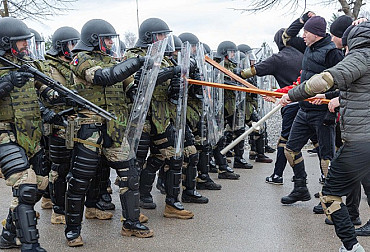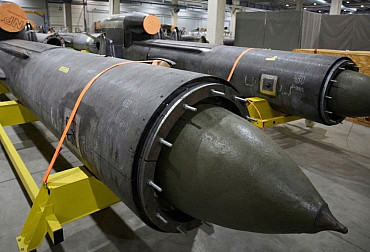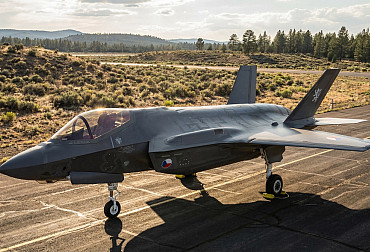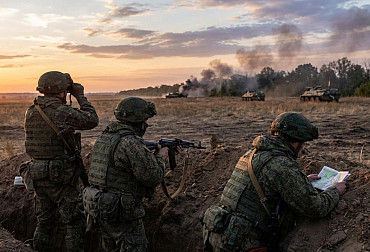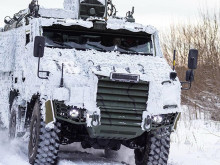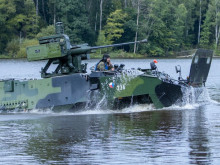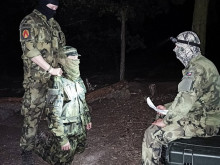Ordnance specialist from Bechyně became the best student on a prestigious course in the USA
Air ammunition demonstrated directly on aircraft, introduction of explosive booby trap systems or ammunition with biological or chemical substances. All of this was part of the International Explosive Ordnance Disposal Course (EOD) at the EOD Navy School near Eglin, Florida. Lieutenant Radek Michalka from the 15th Engineer Regiment spent eight months there in a demanding study and was named the best student of the year.
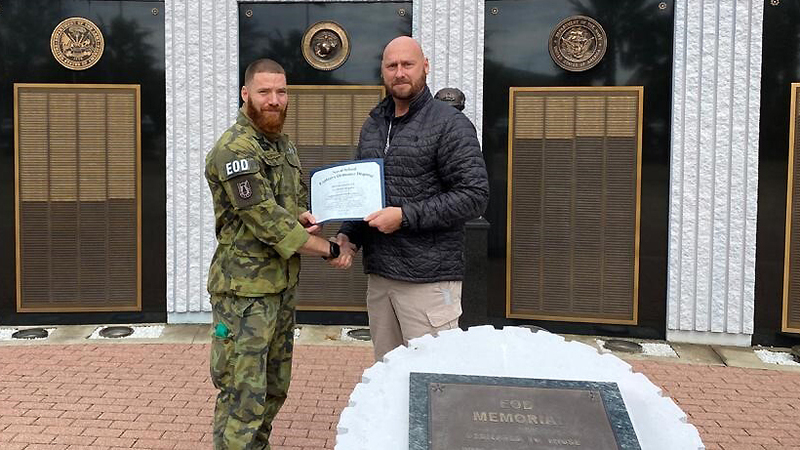 Picture: Lieutenant Radek Michalka from the 15th Engineer Regiment spent eight months there in a demanding study and was named the best student of the year. | Ministry of Defense of the Czech Republic
Picture: Lieutenant Radek Michalka from the 15th Engineer Regiment spent eight months there in a demanding study and was named the best student of the year. | Ministry of Defense of the Czech Republic
"The course was in many ways similar to the Czech one, which is based on the American concept. A huge advantage, however, was the opportunity to try out equipment or ammunition that we do not have at home," Radek Michalka said.
Students had at their disposal, for example, a whole range of aircraft such as the F/A-18 SuperHornet, A-10 Thunderbolt or AH-64 Apache and Mi-24 helicopters. "We were able to touch on the whole process from start to finish, from providing ammunition to removing all the explosive risks within the entire aircraft. We do not have such a training base and we cannot simply practice it on entire aircraft," he describes the phase of the course in which they discussed air ammunition.
Michalka, who is the deputy commander of the EOD company at the 15th Engineer Regiment, emphasized that thanks to this he also obtained the authorization to work with guided missiles, such as the AIM-9 Sidewinder or AIR-120 AMRAAM. This international certificate can be used in foreign operations such as Air Policing. In addition, the course also focused on improvised explosive systems and in detail on biological and chemical ammunition.
Good English is the basis
Studying in America is based on a good knowledge of English. "It is not just about the ability to communicate. EOD issues include a number of specific terms and concepts that cannot be described and you simply have to learn them. It is all the more difficult because I was the only Czech there, I did not have the opportunity to ask someone to explain the meaning to me. I just had to understand it somehow," Michalka described the language requirements.
Neither the progress tests offered any comfort. He had to pass over thirty for the entire study. "While in the USA they strictly follow the tables of what you have to and must not do and stick with it with no exception, in the Czech Republic we can think about it. When someone acts uncommonly and it does not conflict with safety or other evaluated factors, we accept it."
Despite all obstacles, Michalka was the best student of this year and received the "Student of Honor" award with an average result of 96% of all tests.
Three in a group? Ideal
The course was marked by the coronavirus crisis, so Radek Michalka was in the group with only two other students - a Japanese and a Saudi Arabian. Normally, the number of students is around fifteen. "Because there were really few of us, we had a huge advantage in a way. Everyone was assigned an instructor, with whom they managed to try practically many more things than in normal situation."
He now understands the work of American ordnance specialists perfectly
Thanks to the international EOD course, Michalka not only obtained the right to perform pyrotechnic work and new knowledge in English, but also other benefits for future foreign cooperation: “I got to know in detail how the American EOD system works. Now I know exactly how they do it and with what. And because I also know our procedures, I can find the golden mean in further cooperation and arrange for everything to work as efficiently as possible.“
The next international exercise together with the Americans is pre-planned in the Bechyně garrison in autumn, when the Minigator exercise should take place. Of course, everything depends on the development of the epidemiological situation.











